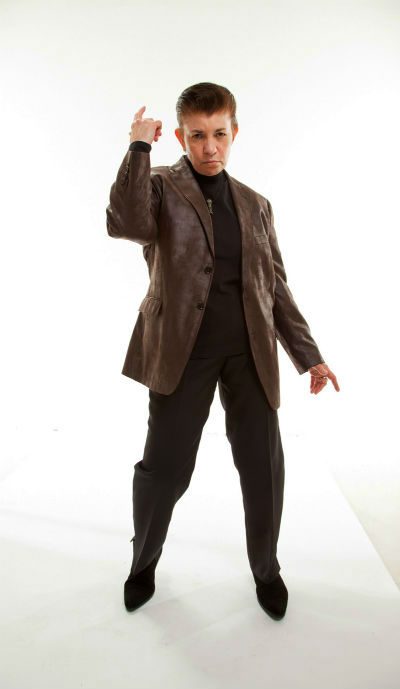Thoughts from a blue collar dyke who knows better.
I grew up in a dying blue collar town in upstate New York. Hudson entered its decline in the 1960s when the Lone Star and Atlas cement plants began their exit. In the 1950s a movie called Odds against Tomorrow had been filmed in my hometown. It was a prophetic title because Hudson was a city without hope.
Today hopelessness is what drives Trump’s blue collar supporters. The certainty of a bleak future and a lack of validation leads to the blind devotion Mr. Trump enjoys as he convinces the powerless and forgotten he hears them. In a town like the one I spent my first seventeen years in this is a powerful message. I don’t know how many times I sat at the dinner table, which was really an interior door my father had put legs on, and heard bitter resentment directed at those who “had pull.” “Pull” was something elusive we never had. I came to hate the phrase. Later in life I came to realize “pull” meant validation. It belongs to people who matter and will be listened to by those in power. A blue collar meant that wasn’t you. Everyone wants to be listened to and validated. Everyone wants to feel his or her opinion counts. Trump is a rich man who can say publicly what those who never enjoyed “pull” can only say behind closed doors to no one who matters. Finally someone is giving those of the blue collar class the validation they have craved for so long. He listens to them and makes the promises they want to hear. When President Trump is in the White House they will finally have a voice and for that promise they will give their support no matter what he says or does. Trump gives those wearing the blue collar longed for validation and that is all those who wear it need. He will have them well after November 8, 2016, win or lose.
There is another group in America that remains on the wrong side of validation and that is the black population who has known too long that institutional racism does exist in this country. I got out of the trap of blue collar America by going to college and then law school through hard work and some luck. In the 1980s, at the height of the crack epidemic, I took a job working for a landlord in Harlem doing his landlord/tenant work. I took that experience to the New York Police Department where, among other things, I evicted drug dealers from public housing projects. I saw institutional racism first hand. We could get the drug dealers out of the projects but we were understaffed. There just wasn’t enough of us to get the job done and reinforcements never came when asked for. It became clear to me that the powers-that-be were fine with the drugs staying in the projects. I worked a case where a 3-year-old had been killed in crossfire between gangs and I also went to a police officer’s funeral. He had been gunned down in a stairwell by drug dealers while looking for a lost child. I watched a housing project manager who had been a Marine cry because he couldn’t do anything to stop the dealers and no one would listen to him. I heard pleas of project residents who wanted to just be safe in their homes but we couldn’t get the resources we needed to help them. If the drug dealers were forced out of the projects they might move to the white suburbs. Let the white kids come to the projects for their drugs but don’t get the drugs out of the projects.
I graduated from Smith College in 1976 and one of my classmates was Yolanda King. I didn’t know her to speak to her but I do remember her father’s words about having a dream. I have a dream, too: That one day these two very divergent but similar groups will learn to validate each other. Maybe then we’ll make some real progress.
About the author:
Susan Surftone is a former FBI agent and a musician who was initially inspired by Elvis Presley, and who specializes in the electric guitar. Find out more about her and her albums at www.susansurftone.com
